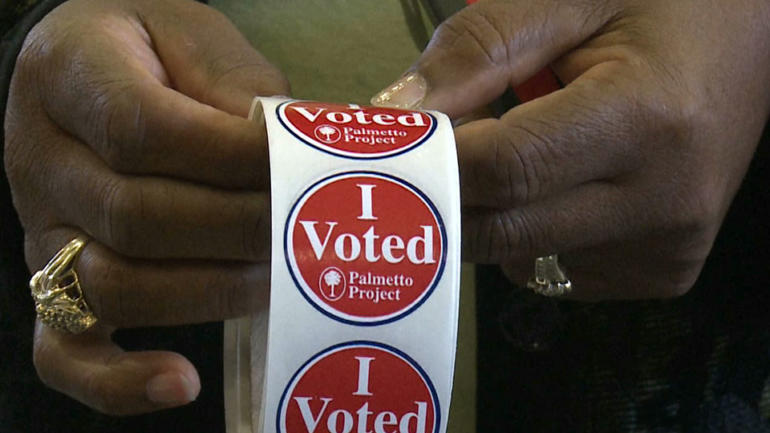A series of changes to U.S. laws is making it more difficult for many African Americans and other minorities to vote, as midterm congressional elections approach.
CGTN’s Jim Spellam reports.
In 1965, U.S. President Lyndon Johnson signed the Voting Rights Act, a landmark law that removed barriers that had prevented African Americans from voting. In 2013, the Supreme Court struck down parts of the Voting Rights Act, giving local jurisdictions greater control over the voting process and allowing the creation of new barriers to voting.
Critics said the changes mostly target African Americans and other minorities.
In Georgia, strict voter I.D. laws are making it more difficult to vote, impacting thousands of would-be voters in a governor’s race that pits a white, male Republican against an African-American, Democratic female.
Voting rights advocates said the law is racist.
“There is no other explanation that could explain this kind of outcome…when we see racial disparity like this they set off red flags and sadly this is a pattern we are seeing across Georgia this election cycle,” said Kristen Clarke of the National Lawyers Committee for Civil Rights Under Law.
In North Dakota, a controversial law requiring exact street addresses means thousands of Native Americans living on reservations in rural areas may not be able to vote in the upcoming midterm elections.
“It’s discriminating and disenfranchising to our people to not allow them to vote and it’sdiscouraging on top of that,” Margaret Landin of Native Vote ND said.
Other states have also seen voters purged from voting rolls based on minor problems with registrations.
There are also widespread efforts to limit the impact of certain voters through a process known as gerrymandering: state legislatures creating elaborately drawn congressional districts. Both parties do it, but Republicans have been far more effective in recent years.
Republicans have framed these efforts as a fight against so-called voter fraud. A few weeks before the midterms Trump tweeted:
All levels of government and Law Enforcement are watching carefully for VOTER FRAUD, including during EARLY VOTING. Cheat at your own peril. Violators will be subject to maximum penalties, both civil and criminal!
— Donald J. Trump (@realDonaldTrump) October 21, 2018
There is no evidence widespread voter fraud exists. A 2017 report by the Brennan Center for Justice at New York University found that in the 2016 Election, when Trump was elected, just four cases of voter fraud were documented out of nearly 140 million ballots cast.
Atiba Madyun discusses voting rights in the US
CGTN’s Mike Walter spoke to Atiba Madyun about politivs and voting in the U.S. Madyun is the President of Party Politics U.S., an online platform that encourages political engagement across party lines.
 CGTN America
CGTN America

